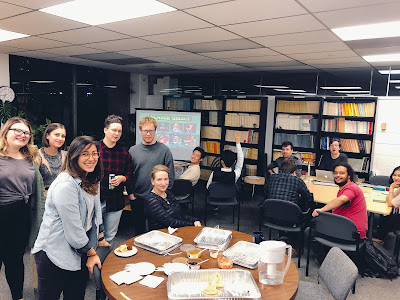and Bernhard Schwarz (McGill University).
- Suzi Lima (faculty) gave one of the invited talks for the Workshop on Semantic Universals: "What do we count? A view from Brazilian indigenous languages.
- Michela Ippolito (faculty) also gave a talk: "Gestures as markers of non-canonical questions."
- Ailís Cournane (Ph.D. 2015, now at New York University) was part of a talk with Anouk Dieuleveut (University of Maryland), Annemarie van Dooren (University of Maryland), and Valentine Hacquard (University of Maryland): "Learning modal force: Evidence from children's production and input."
- Ewan Dunbar (MA 2008, now at l'Université Paris Diderot) was part of a talk with Mélissa Berthet (École normale supérieure), Juan Benjumea (Ghent University), Juliette Millet (Université Paris Diderot), Cristiane Cäsar (Pontifícia Universidade Católica de Minas Gerais), and Klaus Zuberbühler (University of St. Andrews): "Animal linguistics and the puzzle of Titi monkeys' alarm sequences."
- Julie Goncharov (Ph.D. 2015, now at the University of Tromsø) and Lavi Wolf (Ben Gurion University of the Negev): "Time matters: The role of temporal boundaries in NPI licensing."
- Ailís Cournane (Ph.D. 2015, now at New York University) with Maxime Tulling (New York University): "The role of 'fake' past tense in acquiring counterfactuals."








































